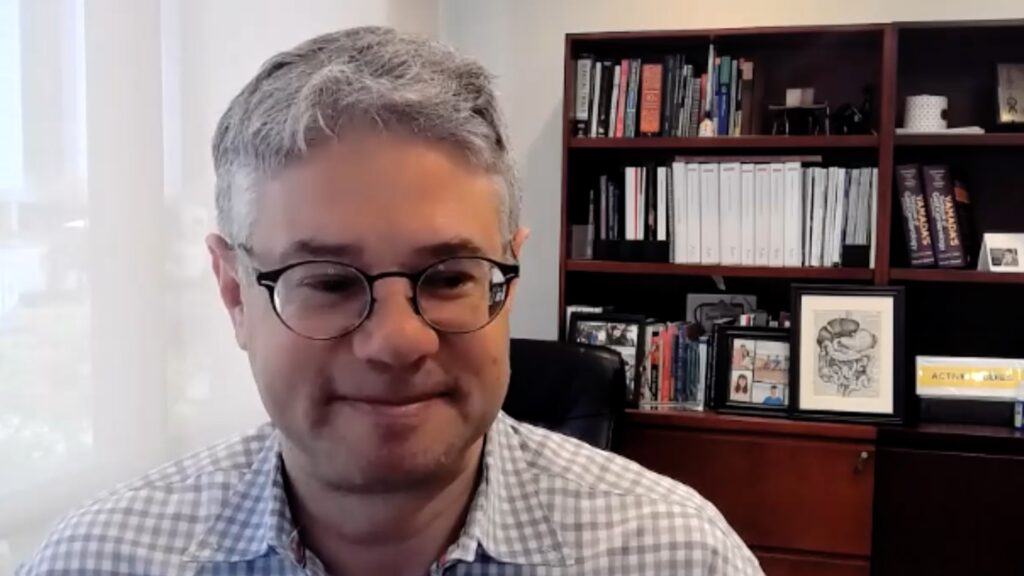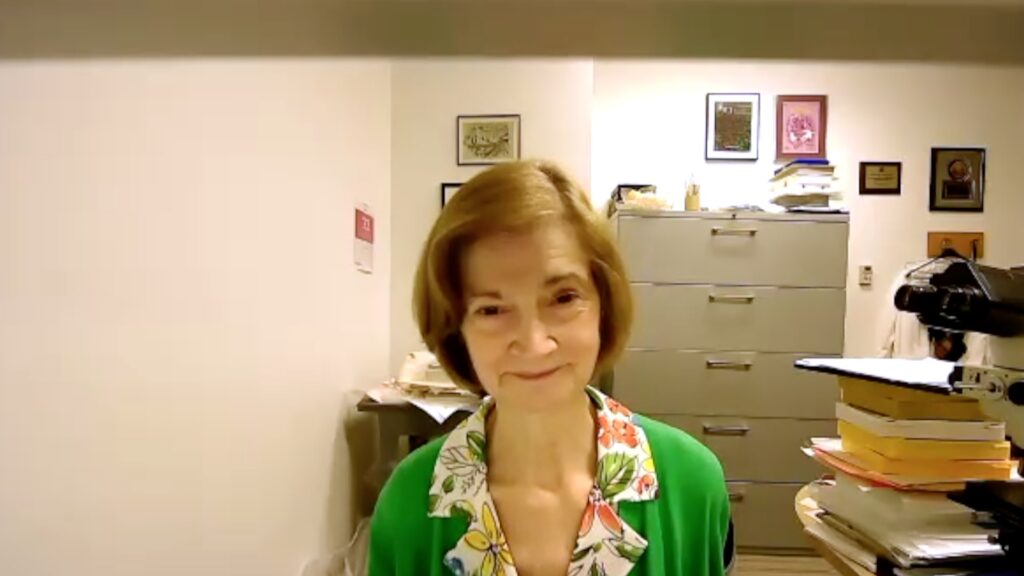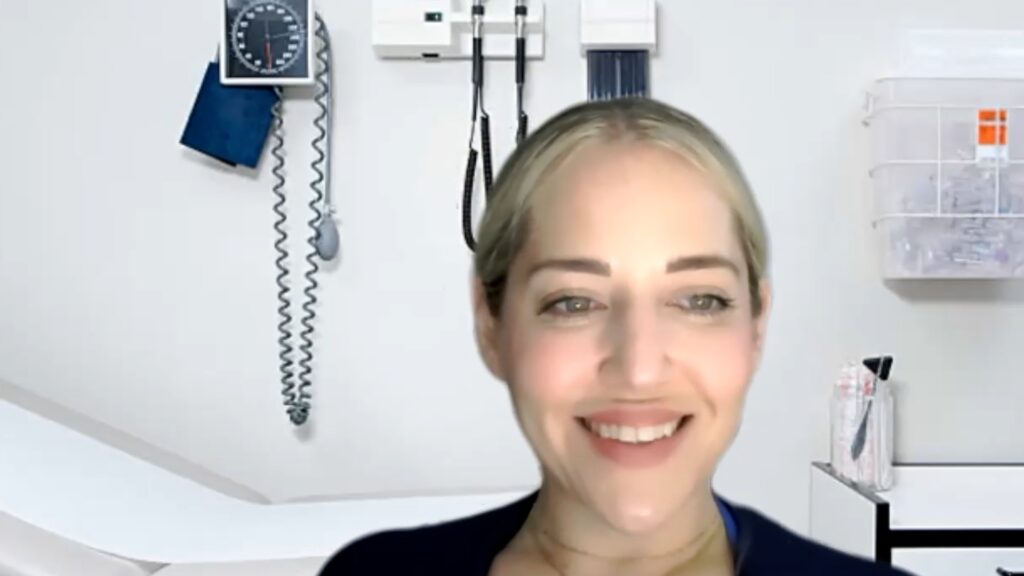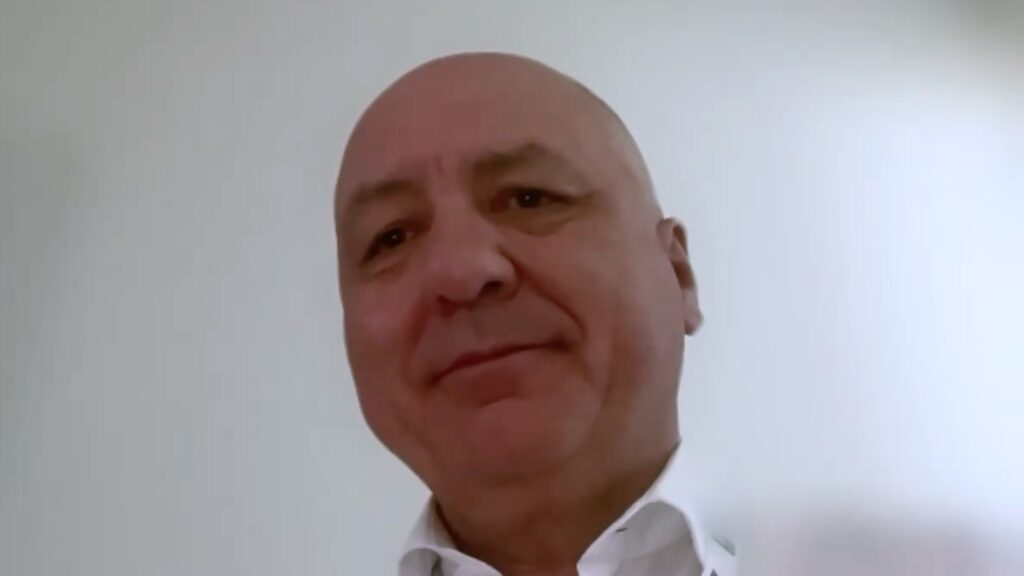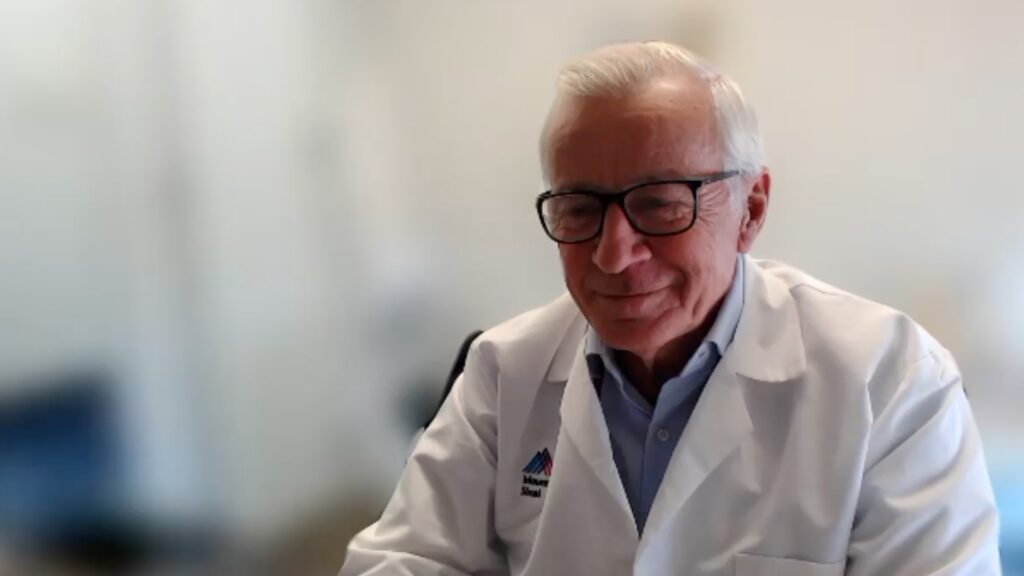The phase 3 LIBERTY-EoE-TREET study (NCT03633617) evaluated the efficacy and safety of dupilumab in adult and adolescent patients with eosinophilic oesophagitis. We caught up with Prof Arjan Bredenoord (Amsterdam University Medical Center, Amsterdam, the Netherlands) to discuss the part C subgroup analysis, which investigated the effect of prior topical corticosteroid use on the efficacy of dupilumab.
This information is brought to you by Touch Medical Media and is not sponsored by, nor a part of, the DDW.
The abstract ‘DUPILUMAB IS EFFICACIOUS IN EOSINOPHILIC ESOPHAGITIS REGARDLESS OF PRIOR USE OR PRIOR INADEQUATE RESPONSE, INTOLERANCE, OR CONTRAINDICATION TO SWALLOWED TOPICAL CORTICOSTEROIDS: RESULTS FROM PART C OF THE LIBERTY-EOE-TREET STUDY’ was presented at Digestive Disease Week 2023, May 6-9, 2023.
Questions
- What were the aims, design and inclusion criteria of the phase 3 LIBERTY-EoE-TREET study? (0:16)
- What clinical endpoints were assessed in the study, and how well were these achieved? (1:03)
- What were the findings of the part C subgroup analysis? (1:53)
- How will these insights optimize our use of dupilumab in patients with eosinophilic oesophagitis? (2:24)
Disclosures: Arjan Bredenoord discloses research funding from Dr Falk Pharma, Norgine, Nutricia, Sanofi, SST, and Thelial and consulting fees from Alimentiv, AstraZeneca, Aquilion, Dr. Falk Pharma, Laborie, Medtronic, Regeneron Pharmaceuticals Inc., and Sanofi.
Support: Interview and filming supported by Touch Medical Media Ltd. Interview conducted by Atiya Henry.
Filmed in coverage of DDW 2023.
Transcript
Hi, I am Arjan Bredenoord. I’m a gastroenterologist working in the academic university medical center in Amsterdam, the Netherlands.
What were the aims, design and inclusion criteria of the phase 3 LIBERTY-EoE-TREET study? (0:16)
In this study, patients with eosinophilic oesophagitis active while being treated with proton pump inhibitors were included. And these patients were randomized to either dupilumab 300 milligrams weekly, every other week, or placebo. And after 24 weeks, the effect of the treatment was evaluated and after another 28 weeks further another evaluation point was present in the study. So the aim was to assess whether dupilumab was better than placebo for the treatment of these patients.
What clinical endpoints were assessed in the study, and how well were these achieved? (1:03)
So the most important endpoints of the study were histologic improvement, which was measured with a DSQ, a questionnaire, and histologic improvement measured by the number of eosinophils per microscopic high power field. Patients are said to be in histologic remission when they have six or less eosinophils per microscopic high power field. Now after 52 weeks of treatment, approximately 80% of the patients that were treated with dupilumab achieved this objective, which is quite a high number of patients. Also, the patients do symptomatically much better than those treated with placebo.
What were the findings of the part C subgroup analysis? (1:53)
Now, what we presented at DDW was a subgroup analysis on patients that had a prior treatment with topical corticosteroids or with inadequate response intolerance or contraindications to topical corticosteroids. And our data shows that these patients do equally well with treatment with dupilumab.
How will these insights optimize our use of dupilumab in patients with eosinophilic oesophagitis? (2:24)
Well these data are very important. Particularly in Europe, where dupilumab will be available in particular for the patients that have been treated with topical steroids before and have failed. And basically what our data shows is that they’ll have an equally high chance of success as those that have not failed on topical corticosteroids. This is important because in certain other diseases such as inflammatory bowel disease, if patients fail on a first set of treatments, they are more likely to fail on subsequent treatments as well. Now, apparently, this is not the case for eosinophilic oesophagitis.
Subtitles and transcript are autogenerated


